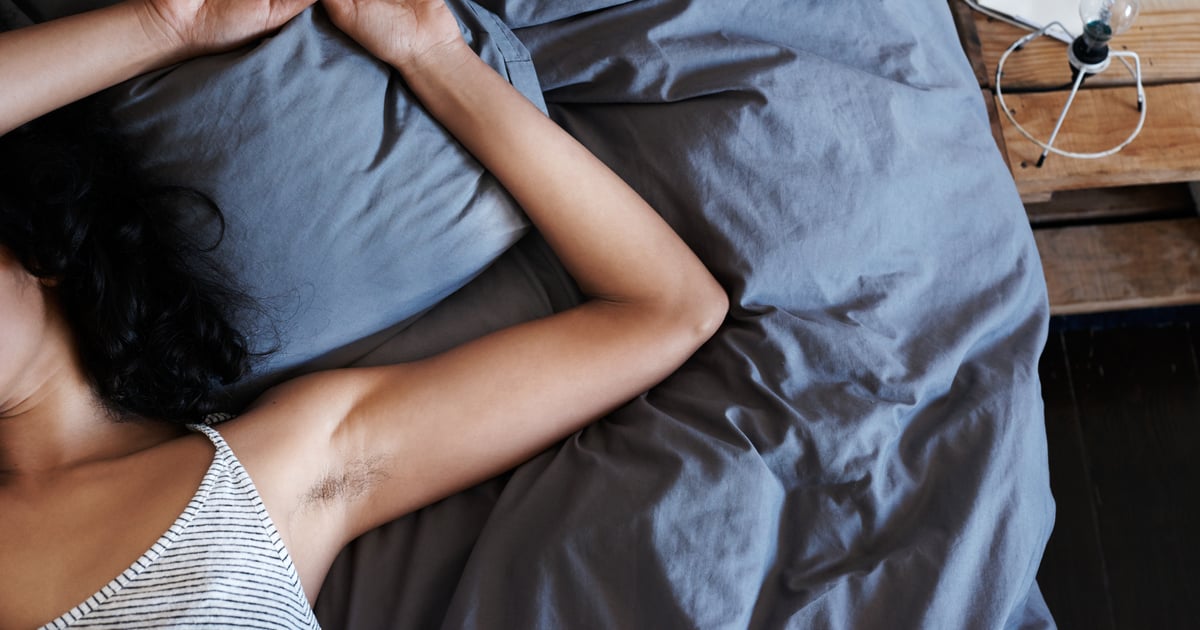
Image Source: Getty / NKS_Imagery
When my twin sister got the first dose of the Pfizer-BioNTech COVID-19 vaccine at the end of December, she kept noting that her armpit felt swollen. It was similar to the soreness experienced with an ingrown hair, but was deeper and there was more of a lump. She called it “unpleasant,” though the soreness eventually subsided, and she later realized it was her lymph node.
This particular side effect of the COVID-19 vaccines is a normal reaction. In fact, the FDA even lists “swollen lymph nodes in the same arm as the injection,” as a side effect of the Moderna vaccine, and swollen lymph nodes is also listed under potential reaction to Pfizer‘s option.
Purvi Parikh, MD, an immunologist with Allergy & Asthma Network who is also a co-investigator on COVID-19 vaccine trials at NYU, told POPSUGAR that swollen lymph nodes are your body’s way of showing that it is processing the vaccine despite the fact that actually developing an immune response may take up to a few weeks. This goes, she said, for injection of any vaccine, “and it’s an expected side effect.” There are immune cells in your lymph nodes, Dr. Parikh explained, and the reason why the particular lymph nodes near your armpit might swell is because they’re typically the ones closest to the injection site (your arm).
One college professor who goes by the TikTok username @scitimewithtracy and who has a PhD in microbiology and immunology, further explains this concept in the video ahead. She notes that there’s a localized inflammatory response at the injection site, which makes it warm and tender. This inflammatory response is followed by the creation of antibodies.
White blood cells called B and T cells — B cells create antibodies — are concentrated in your lymph nodes, including the ones in your armpit. “Now, the information from the injection here down lower in the arm is going to travel to the lymph node, tell those cells to start making more of themselves, and it’s going to swell the lymph node as part of the response because that’s where the magic happens,” the professor says.
@scitimewithtracy Where the magic happens! #stitch with @beachgem10 #turnsoutthat #immunology #macrophage #closedcaption #science #covid19 #vaccine #Wee
The professor told POPSUGAR that she suspects this same reaction could take place with COVID-19 vaccines to come, not just the mRNA vaccines we have currently. Dr. Parikh added that she hasn’t seen lymph node swelling as one of the commonly reported side effects in comparison to others such as fatigue, fever, chills, and joint or muscle pain that last up to 48 hours. (Note: she actually got her second COVID-19 vaccine dose the day before we spoke over the phone, and she said her arm was very sore).
Dr. Parikh said that lymph node swelling or not, you may have more of a reaction after the second dose — which is consistent with what has been reported about side effects to date. Interestingly enough, my sister said after the second dose that she felt like the lymph node swelling was more expansive than the first time.
Swollen lymph nodes are nothing to worry about, though Dr. Parikh did indicate that if you’re having any type of rash at the injection site or elsewhere, she suggests contacting your healthcare provider. That being said, a rash on your arm after the Moderna shot specifically is reportedly harmless.
“If your symptoms are persisting and not getting better with Tylenol or Advil, the fever is not climbing down, or something feels off or very severe, you should definitely contact your doctor as well,” Dr. Parikh noted. Despite the fact that more serious adverse effects are monitored immediately after you receive the vaccine, and most anaphylactic reactions, if any, she said, would occur 30 minutes to 60 minutes post-vaccine, Dr. Parikh recommends calling your doctor, too, at the first sign of lightheadedness, vomiting, or difficulty breathing.
POPSUGAR aims to give you the most accurate and up-to-date information about the coronavirus, but details and recommendations about this pandemic may have changed since publication. For the latest information on COVID-19, please check out resources from the WHO, CDC, and local public health departments.
